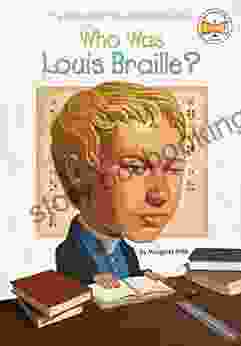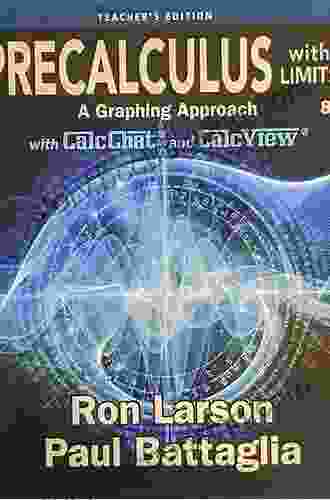Who Was Louis Braille? The Blind Genius Who Invented a Revolutionary Reading System

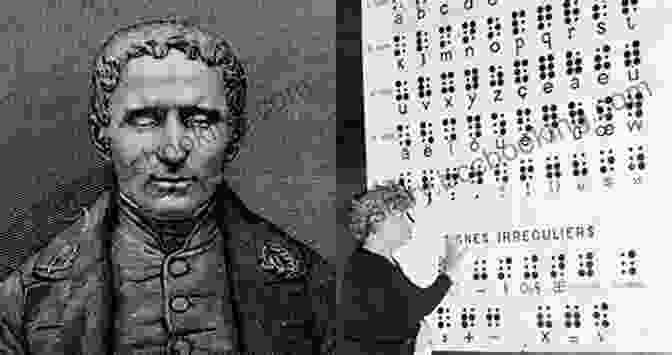
Louis Braille, a French educator and inventor, is celebrated today for his groundbreaking invention of the Braille system, a tactile writing and reading system designed specifically for the blind and visually impaired. Braille transformed the lives of countless individuals by providing them with the ability to read, write, and communicate, thus opening up a world of knowledge and opportunities that were previously inaccessible. In this comprehensive article, we'll delve into the life, achievements, and legacy of Louis Braille, the visionary who revolutionized the way the blind experience the world of reading.
4.8 out of 5
| Language | : | English |
| File size | : | 51674 KB |
| Text-to-Speech | : | Enabled |
| Screen Reader | : | Supported |
| Enhanced typesetting | : | Enabled |
| Word Wise | : | Enabled |
| Print length | : | 114 pages |
Early Life and Education
Louis Braille was born on January 4, 1809, in Coupvray, a village near Paris, France. At the tender age of three, while playing in his father's workshop, Louis accidentally jabbed a sharp awl into his left eye. The infection from the injury spread to his right eye, resulting in the complete loss of his sight by the age of five.
Despite his profound visual impairment, Braille's thirst for knowledge and education remained unquenchable. At the age of ten, he was enrolled at the Royal Institute for Blind Youth in Paris, a boarding school established specifically for educating blind children.
Inspiration for Braille
At the Royal Institute, Braille encountered the existing reading system for the blind, which involved raised lines representing letters of the alphabet. However, this system proved to be cumbersome and time-consuming, severely limiting the reading speed and comprehension of blind individuals.
Inspired by the military cryptography system known as night writing, which allowed soldiers to communicate silently in the dark, Braille began experimenting with developing a more efficient and accessible reading system for the blind.
Invention of the Braille System
After years of meticulous experimentation and refinement, Braille developed a system of tactile dots arranged in cells, each representing a specific letter, number, or symbol. The dots were carefully spaced and configured in a way that could be easily distinguished by touch, enabling blind individuals to read and write fluently.
The Braille system initially consisted of 12 dots arranged in two columns of six. In 1834, Braille simplified the system to six dots arranged in two columns of three, creating the modern Braille alphabet that is still widely used today.
Challenges and Acceptance
Braille's invention faced skepticism and resistance from some quarters. Many sighted educators and even some blind individuals were reluctant to embrace a new reading system that deviated from established norms.
Undeterred, Braille and his supporters tirelessly advocated for the widespread adoption of the Braille system. Over time, the undeniable benefits of Braille became increasingly evident, and its use gradually gained acceptance within the blind community.
Legacy and Impact
Louis Braille's invention of the Braille system had a profound and lasting impact on the lives of blind and visually impaired individuals worldwide. It opened up avenues for education, employment, and social inclusion, empowering them to actively participate in society.
The Braille system has been adapted and expanded over the years to accommodate different languages, mathematical symbols, and musical notation. It remains the primary reading and writing system for the blind and visually impaired, facilitating access to literature, education, scientific texts, and a wealth of other written materials.
Recognition and Honors
Louis Braille's groundbreaking achievements have been recognized and celebrated throughout history. In 1852, the Royal Institute for Blind Youth renamed itself the Institut National des Jeunes Aveugles in honor of Braille's legacy.
Braille's birthday, January 4, is commemorated as World Braille Day, a day dedicated to raising awareness about the importance of Braille and promoting its use globally.
Numerous schools, streets, and institutions around the world bear Braille's name, serving as a testament to his enduring impact on education and the lives of blind and visually impaired individuals.
Louis Braille's life and work exemplify the transformative power of innovation and the indomitable spirit of human ingenuity. Through his invention of the Braille system, he empowered countless blind and visually impaired individuals, providing them with the gift of literacy and the opportunity to fully participate in society.
Braille's legacy continues to inspire generations of educators and innovators to develop assistive technologies that break down barriers and create a more inclusive world for individuals with disabilities. His unwavering dedication to improving the lives of others serves as a timeless reminder of the profound impact that one person's determination can have on the world.
4.8 out of 5
| Language | : | English |
| File size | : | 51674 KB |
| Text-to-Speech | : | Enabled |
| Screen Reader | : | Supported |
| Enhanced typesetting | : | Enabled |
| Word Wise | : | Enabled |
| Print length | : | 114 pages |
Do you want to contribute by writing guest posts on this blog?
Please contact us and send us a resume of previous articles that you have written.
 Book
Book Novel
Novel Page
Page Chapter
Chapter Text
Text Story
Story Genre
Genre Reader
Reader Library
Library Paperback
Paperback E-book
E-book Magazine
Magazine Newspaper
Newspaper Paragraph
Paragraph Sentence
Sentence Bookmark
Bookmark Shelf
Shelf Glossary
Glossary Bibliography
Bibliography Foreword
Foreword Preface
Preface Synopsis
Synopsis Annotation
Annotation Footnote
Footnote Manuscript
Manuscript Scroll
Scroll Codex
Codex Tome
Tome Bestseller
Bestseller Classics
Classics Library card
Library card Narrative
Narrative Biography
Biography Autobiography
Autobiography Memoir
Memoir Reference
Reference Encyclopedia
Encyclopedia Lynn Alley
Lynn Alley Mark Esho
Mark Esho Louis Van Dyke
Louis Van Dyke Lynda Williams
Lynda Williams Lora D Delwiche
Lora D Delwiche Shelby Foote
Shelby Foote Lsatmax Lsat Prep
Lsatmax Lsat Prep Luis Carlos Montalvan
Luis Carlos Montalvan Margaret Cardillo
Margaret Cardillo Magnus Unemyr
Magnus Unemyr Michael Koller
Michael Koller Stephanie Pinder Amaker
Stephanie Pinder Amaker M J York
M J York Richard Holbrooke
Richard Holbrooke Logan Thompson
Logan Thompson Margaret A Fitzgerald
Margaret A Fitzgerald Will Larson
Will Larson Maoz Azaryahu
Maoz Azaryahu Pat Falvey
Pat Falvey Sydell Waxman
Sydell Waxman
Light bulbAdvertise smarter! Our strategic ad space ensures maximum exposure. Reserve your spot today!

 Garrett BellUncover the Wild West's Secrets with Louis L'Amour's Captivating Utah Blaine...
Garrett BellUncover the Wild West's Secrets with Louis L'Amour's Captivating Utah Blaine... Yukio MishimaFollow ·6.8k
Yukio MishimaFollow ·6.8k Fernando PessoaFollow ·4k
Fernando PessoaFollow ·4k Griffin MitchellFollow ·10.5k
Griffin MitchellFollow ·10.5k Juan RulfoFollow ·12.1k
Juan RulfoFollow ·12.1k Charles DickensFollow ·2.6k
Charles DickensFollow ·2.6k James JoyceFollow ·7.6k
James JoyceFollow ·7.6k Edgar Allan PoeFollow ·4.9k
Edgar Allan PoeFollow ·4.9k Leslie CarterFollow ·5.6k
Leslie CarterFollow ·5.6k
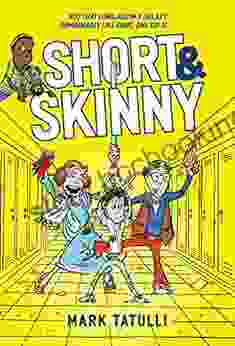
 Truman Capote
Truman CapoteShort, Skinny Mark Tatulli: The Ultimate Guide to a...
Are you tired of being...
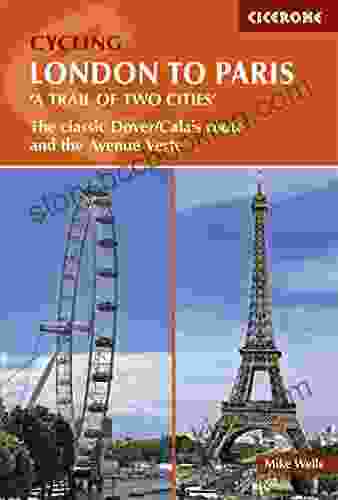
 Robert Heinlein
Robert HeinleinEmbark on an Unforgettable Cycling Adventure: The Classic...
Explore the Timeless...

 Bryce Foster
Bryce FosterMisty Twilight: Marguerite Henry's Enduring Masterpiece
A Literary Legacy that...
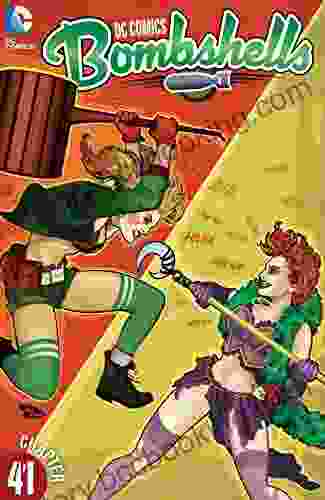
 Anton Chekhov
Anton ChekhovUnleash the Explosive Power of DC Comics Bombshells 2024...
Prepare yourself for an...
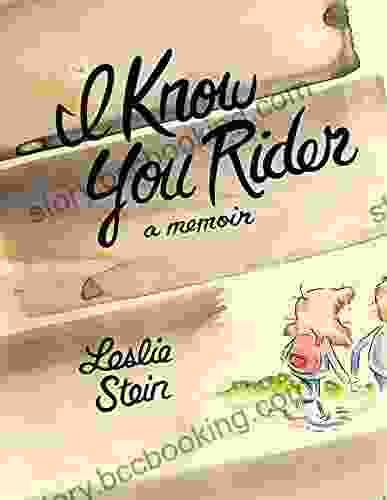
 Juan Butler
Juan ButlerUnleash the Thrill: Discover 'Know Your Rider' by...
Prepare yourself for an...
4.8 out of 5
| Language | : | English |
| File size | : | 51674 KB |
| Text-to-Speech | : | Enabled |
| Screen Reader | : | Supported |
| Enhanced typesetting | : | Enabled |
| Word Wise | : | Enabled |
| Print length | : | 114 pages |


